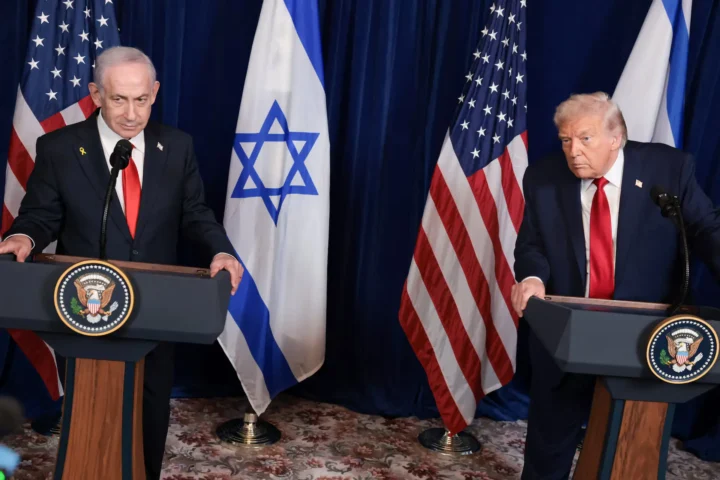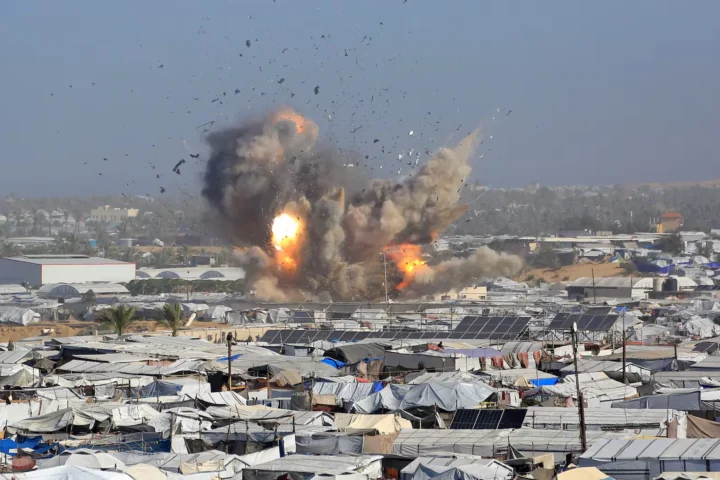In a pivotal step toward halting hostilities, the Israeli cabinet is poised to vote on a cease-fire agreement with the Lebanese militant group Hezbollah on Tuesday. The proposal, reportedly approved “in principle” by Israeli Prime Minister Benjamin Netanyahu late Sunday, could pave the way for a 60-day truce. This agreement includes the withdrawal of Israeli and Hezbollah forces from southern Lebanon and the deployment of the Lebanese Army to the border region within two months, creating a buffer zone south of the Litani River.
The cease-fire, brokered with U.S. backing, aims to restore United Nations Security Council Resolution 1701, which ended the 2006 Israel-Hezbollah conflict by establishing the Blue Line—a 75-mile de facto border between Israel and Lebanon. Negotiators hope the agreement will enable hundreds of thousands of displaced citizens on both sides to return to their homes after weeks of intense cross-border bombardment.
Israeli Ambassador to the United States Mike Herzog suggested an announcement of the accord could come “within hours.” While details remain under negotiation, Lebanese Deputy Parliament Speaker Elias Bou Saab indicated there are “no serious obstacles” to its implementation.
A Fragile Road to Peace
The cease-fire talks come amid ongoing violence that has claimed thousands of lives. Over the weekend, an Israeli strike in Beirut killed 29 people and injured 65, with the Israeli military reportedly targeting senior Hezbollah commander Mohammad Haidar. However, one defense official claimed Haidar was not among the casualties.
In retaliation, Hezbollah launched one of its largest aerial offensives in recent memory, firing 250 projectiles into Israel on Sunday, followed by 40 more on Monday. These attacks have fueled concerns among experts that a single misstep could derail the fragile negotiations.
Since fighting between Israel and Hezbollah reignited in October alongside the Israel-Hamas conflict, more than 3,700 Lebanese have been killed and 15,000 injured. The escalating violence underscores the urgency of a durable cease-fire.
Diplomatic Push for Security Assurances
To address Israel’s concerns, the U.S.-backed deal includes provisions allowing Israel to conduct military operations against imminent threats and disrupt Hezbollah’s weapons smuggling near the border. Both U.S. President Joe Biden and French President Emmanuel Macron are expected to announce the cease-fire on Tuesday if the Israeli cabinet gives its approval.
“We think we have a deal,” a U.S. official told Axios. “We are on the goal line, but we haven’t passed it yet.” The official warned that unexpected developments could still jeopardize the agreement.
Hope Amid Uncertainty
Despite the continued violence, diplomatic momentum offers a glimmer of hope. U.S. special envoy to the Middle East Amos Hochstein emphasized the opportunity at hand, calling the cease-fire “the decision of the parties” and urging all sides to seize the moment.
As both nations prepare for a possible cessation of hostilities, the world watches closely, hoping the agreement will mark a turning point in a conflict that has brought devastation to thousands. For the displaced families and communities on both sides of the Blue Line, the stakes could not be higher.











